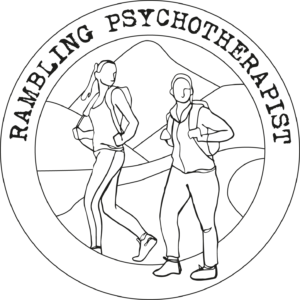 It is World Sleep Day this Friday, and as sleep is often a highly underestimated factor in maintaining good health, I thought it might be useful to jump on here and have a chat about it.
It is World Sleep Day this Friday, and as sleep is often a highly underestimated factor in maintaining good health, I thought it might be useful to jump on here and have a chat about it.
In this fast paced society that we live in, where we are encouraged to be permanently switched on and productive, it is common for sleep to take a bit of a back seat when it comes to priorities. What we don’t necessarily realise though, is that by doing this, we are training ourselves out of the habit of sleeping well and this can significantly impact our health.
We still don’t know enough about sleep and the role it plays in keeping us well, but what we are learning is that it plays a massive role in helping us to maintain healthy function in all sorts of biological systems, and is not just about getting a little rest to recharge our batteries.
For the purposes of this post though, there is evidence to suggest that it plays a pivotal role in helping us maintain good mental and emotional health, heart health and immune function, so I reckon it’s not to be underestimated..
Through my work and in my personal life, I encounter so many people who feel they don’t get good enough quality sleep, be that (like I have experienced) they have no problem getting off to sleep but struggle to get uninterrupted rest and wake feeling unrefreshed, or those who really struggle to drop off in the first place and spend endless hours staring at the ceiling with a whirring mind (and any other variety on the spectrum in between). The result is that we have a hoard of people semi-sleepwalking through life on auto-pilot, because they are totally under-resourced.
Now, this might not be a popular view, especially for those people who have been trying to sort out their sleep patterns for years now, but – there are things you can do to help train yourself into better sleeping habits.
Here are just a few of things you might want to consider:
- 💤 People most often think about sleep hygiene being something you do at night, but actually sleep hygiene starts the moment you wake up in the morning. Getting outside for a dose of natural light (10mins full sun / 20 mins cloudy) first thing in the morning supports your body to produce melatonin later in the day, and it is melatonin that induces sleep. Try to do this before 10am if you can.
- 💤 A nervous system that is almost permanently hovering on the edges of fight/flight/freeze responses is not one that will allow the rest of your body to sleep well. Learning to regulate your nervous system so that you can effectively rest and digest is a must. So, for those of you out there who struggle to relax, my advice to you is that you take a look at what you can do to support a more flexible nervous system. Regular breathing/mindfulness breaks throughout the day can be a good starting point to support you to stay regulated and relaxed, and help you process the things that the day is throwing at you, in the moment, which can lead to a more relaxing evening.
- 💤 Reducing your caffeine intake, and trying to avoid it after midday will give you a better chance of getting a quiet night. Now, there was a point in my life where this suggestion would have made me cry, because caffeine and sugar were the only things that felt like they would give me enough energy to get through the day, so if this is your response, trust me, I have a good idea how you feel and I do not make this suggestion lightly. Caffeine wreaks havoc in all sorts of our bodies systems, so this is a biggie when it comes to giving your body what it needs to repair and reset.
- 💤 You are less likely to get restful sleep if you eat too close to bedtime, because your body will be all kinds of busy trying to digest the food. Try to eat your last full meal at least two hours before hitting the sack.
- 💤 Screen time and light stimulation are one of the biggest interrupters of sleep rhythms in the modern age. Try to avoid any screen time for at least an hour before bed, preferably two. And if you absolutely must, then apply all the blue light filters you can get your hands on and turn your screen brightness right down. And just to apply belt as well as braces, consider blue light or migraine glasses.
- 💤 A cool temperature and a bedroom that looks like the kind of place you could curl up and get cosy can support you to relax and drift off to sleep much more quickly. Definitely no screens in the bedroom, and instead of using your phone as an alarm (because seriously man, if it’s there at the side of your bed there will be huge temptation to pick it up and check it), consider buying an old fashioned alarm clock.
- 💤 Routine is important if you are trying to make something a habit, so I recommend calculating your bed and waking times based on the amount of sleep you want to get (7.5-9hrs is recommended), and stick to these timings, even on weekends. So for example, if you need to be up by 8:00am, and you want to get the recommended 7.5 hours of sleep, you need to be getting to sleep for 12:30am. Now, if you are like me, this next statement might be a helpful reminder: this does not mean getting up off the sofa at 12:30. Factor in your nighttime routine (washing, toileting, brushing your teeth) and a little time to get settled and drift off, so that you are actually likely to be hitting sleep at the time you would like. I don’t struggle to get to sleep, so for me this preparing for bed window is around half an hour.
- 💤 Avoid using alcohol as an aid to get to sleep. No matter how good a job it does of knocking you out, it’s not a good long term solution. We all know that alcohol is a toxin, and that as soon as we ingest it our liver goes into fire-fighting mode. This means that you cannot effectively enter a parasympathetic nervous system state, and you resting and digesting will be interrupted. I have never known alcohol support anyone to get a ‘good’ night’s sleep.
- 💤 Consider supplementation. Now, I’m not an expert in nutrition, I only know the bits that I have found useful as I have been on a journey to support myself to heal and come back to better health, so I won’t make any firm recommendations here. I will say however that I have found using adaptogenic herbs, b vitamins and magnesium to support my nervous system have all had a profound impact on my health and my sleep. If you want to give this a go, I highly recommend consulting a professional who can help you navigate the plethora of conflicting information there is out there about supplementation to support good health. I consulted a naturopath when I first embarked on my journey and it was money very well spent.
That should give you enough to get going with.
Do get in contact to let me know how this has landed with you, and if you have any questions.
If you are considering getting support to shape up your emotional and mental health, email me at rachel@ramblingpsychotherapist.co.uk to book in a discovery call, and let’s have a chat about whether working together might be helpful for you.

Leave a Reply
Want to join the discussion?Feel free to contribute!